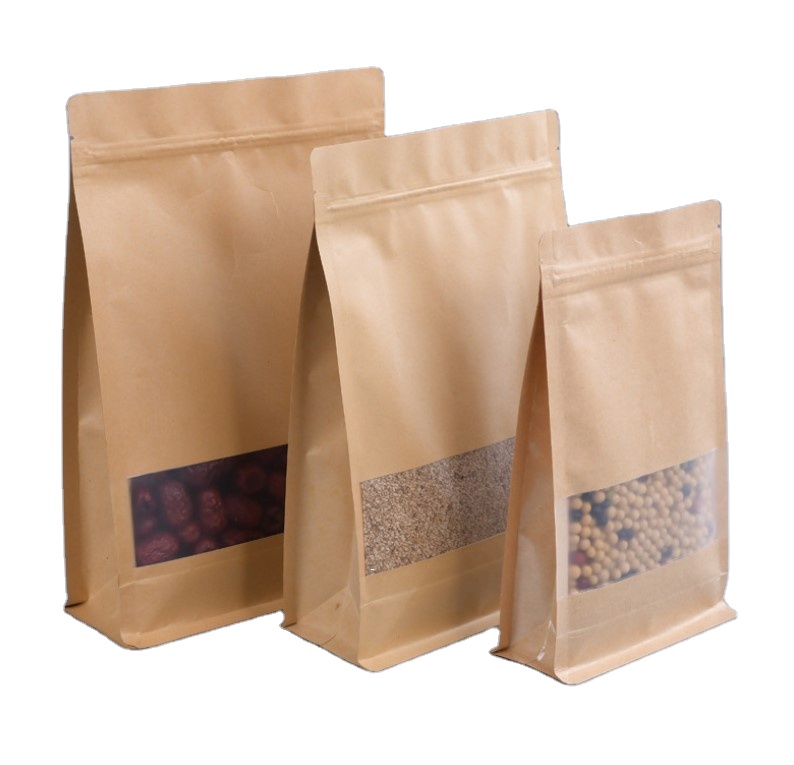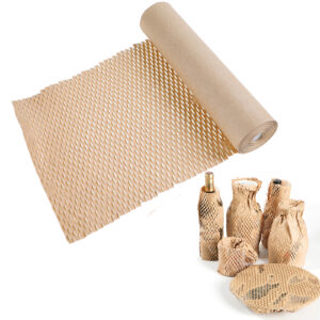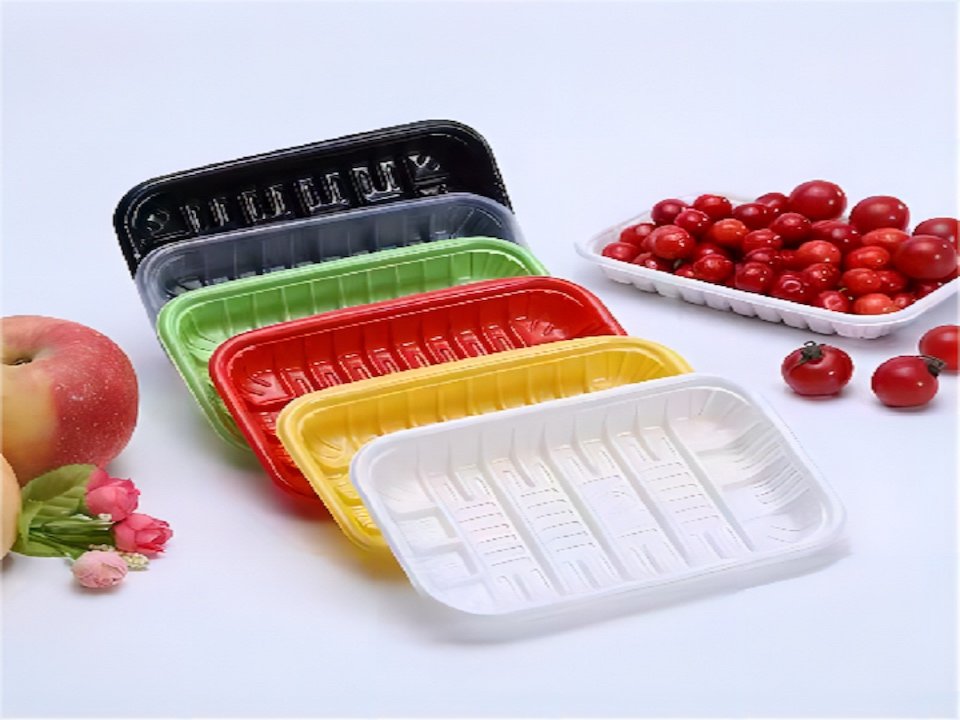Table of Contents
- Introduction
- Trimming the Fat: Cost Savings Through Material Efficiency
- Looking Good, Feeling Good: Enhanced Brand Image and Consumer Loyalty
- Staying Ahead of the Game: Regulatory Compliance and Future-Proofing
- Smooth Operators: Supply Chain Optimization
- Think Outside the Box: Innovation and Market Differentiation
- The Long Game: Sustainability and Profitability
- Wrapping It Up: Conclusion
- Curious Minds Want to Know: FAQs
Introduction
Picture this: You’re strolling through a supermarket, and you notice something different. The fruits and vegetables aren’t suffocating in layers of plastic anymore. Instead, they’re nestled in sleek, eco-friendly packaging that catches your eye. As a consumer, you might feel a twinge of satisfaction knowing you’re making a greener choice. But have you ever wondered what’s in it for the businesses behind this green revolution?
Welcome to 2024, where sustainable packaging isn’t just a feel-good story – it’s a smart business move that’s reshaping the food industry. From the bustling kitchens of food trucks to the sprawling aisles of supermarkets, businesses are discovering that going green isn’t just good for the planet; it’s great for their bottom line too.
In this article, we’re going to peel back the layers (pun intended) of sustainable packaging in the food industry. We’ll explore how produce packers, grocery stores, fast food chains, and everyone in between are turning environmental responsibility into economic opportunity. So, grab a reusable cup of coffee, and let’s dive into the world where sustainability meets profitability.
Trimming the Fat: Cost Savings Through Material Efficiency
Let’s talk money – because at the end of the day, that’s what keeps businesses afloat. You might think that sustainable packaging would cost you an arm and a leg, but here’s the kicker: it can actually fatten your wallet.
Imagine you’re running a fast food joint. You’ve been using those bulky foam containers for years, and suddenly you switch to sleek, plant-based packaging. Not only does it look better (we’ll get to that later), but you might see your packaging costs shrink by 15-20%. That’s not small potatoes!
Or let’s say you’re a produce packer. You ditch those chunky plastic trays for slim, recyclable ones. Boom! You’ve just cut your packaging expenses by up to 30%. It’s like going on a diet, but for your business costs.
But wait, there’s more! These leaner, meaner packages aren’t just cheaper to make – they’re cheaper to ship too. They’re often more compact and stackable, which means you can fit more in a truck. Some grocery chains have seen their logistics costs drop by 10% just by making this switch. It’s like playing Tetris, but the prize is cold, hard cash.
Looking Good, Feeling Good: Enhanced Brand Image and Consumer Loyalty
Now, let’s talk about looking good – because in business, perception is everything. In 2024, having sustainable packaging is like wearing a superhero cape. It tells your customers, “Hey, we care about the planet!” And let me tell you, customers are eating it up.
Did you know that 73% of global consumers say they’d change their habits to reduce their environmental impact? That’s not just talk – it’s walking the walk right into stores that align with their values. For a supermarket, slapping some eco-friendly packaging on their produce could boost sales of those items by 5-10%. Ka-ching!
But it’s not just about slapping a “green” label on your products and calling it a day. It’s about telling a story. Imagine you’re running a food truck. Your tacos are already amazing, but now they come wrapped in packaging made from recycled materials. You’ve just given your customers a side of feel-good vibes with their meal. Some fast food joints have seen their repeat customers jump by 15% with moves like this. It’s not just food they’re coming back for – it’s the whole experience.

Staying Ahead of the Game: Regulatory Compliance and Future-Proofing
Let’s face it – keeping up with regulations can feel like trying to hit a moving target while blindfolded. But here’s the thing: sustainable packaging isn’t just about playing nice with Mother Nature. It’s about staying one step ahead of the regulatory game.
Governments worldwide are cracking down on packaging waste faster than you can say “biodegradable.” By jumping on the sustainable packaging bandwagon now, you’re not just avoiding potential fines – you’re future-proofing your business.
Take Extended Producer Responsibility (EPR) laws, for instance. These bad boys make manufacturers responsible for the entire lifecycle of their packaging. Sounds scary, right? But here’s the silver lining: companies that have switched to sustainable, easily recyclable packaging have cut their EPR compliance costs by up to 40%. That’s like getting a “Get Out of Jail Free” card in Monopoly, but for real-life business.
And here’s the cherry on top: being ahead of the curve makes you the cool kid on the block. A co-packer that’s already nailed the sustainable packaging game? They’re looking at potentially growing their client base by 20-30% over competitors who are still stuck in the plastic age. It’s not just about avoiding penalties – it’s about seizing opportunities.
Smooth Operators: Supply Chain Optimization
Now, let’s talk about keeping things running smoothly – because in the food biz, timing is everything. Sustainable packaging isn’t just about looking good on the shelf. It’s about making your whole supply chain purr like a well-oiled machine.
Picture this: you’re a produce packer, and you’ve just switched to this fancy new bio-based film that regulates moisture. Suddenly, your strawberries are lasting 40% longer on the shelf. For a big supermarket chain, that could mean saving millions in spoilage costs every year. It’s like finding money in your couch cushions, but on a massive scale.
Or maybe you’re slinging burgers from a food truck. Your new sustainable packaging keeps food hot (or cold) for longer. Not only does this mean less waste, but happier customers too. Some food vendors have seen their sales climb by 5-8% just because their food arrives in better condition. It’s a win-win!
But wait, there’s more! A lot of this sustainable packaging comes with some seriously smart tech. We’re talking QR codes, NFC tags – the works. Suddenly, you’re not just moving boxes; you’re tracking your inventory in real-time. Some companies have cut their inventory costs by 20% with these smart solutions. It’s like having a crystal ball for your supply chain.
Think Outside the Box: Innovation and Market Differentiation
In a world where every product is screaming for attention, sustainable packaging can be your secret weapon. It’s not just a box or a wrapper – it’s a canvas for innovation and a ticket to standing out in a crowded market.
Imagine you’re a co-packer, and you’ve just developed a fully compostable package for organic produce. Suddenly, you’re not just another cog in the machine – you’re the go-to partner for premium brands looking to boost their green cred. Some co-packers have seen their revenue jump by 25-30% with moves like this. It’s like being the only one selling umbrellas on a rainy day.
Or let’s say you’re running a fast food chain. You roll out some eye-catching, sustainable packaging that’s practically begging to be shared on Instagram. Before you know it, you’re trending on social media, and your customer acquisition costs have dropped by 15%. It’s free advertising, served with a side of sustainability.
But the innovation train doesn’t stop there. That new packaging that extends shelf life? It could be your ticket to expanding into markets you never thought possible. Some produce packers have grown their market share by 10-20% by reaching areas that were previously too far away. It’s like discovering a new continent, but for your business.
The Long Game: Sustainability and Profitability
Now, let’s zoom out and look at the big picture. Because while all these benefits are great, the real magic of sustainable packaging lies in its power to secure your business’s future.
In 2024, sustainability isn’t just a buzzword – it’s a key factor in how companies are valued. If you’re a publicly traded supermarket or fast food chain, having a strong sustainability game (including your packaging) can boost your stock value and give you better access to capital. Some studies suggest that companies with strong environmental credentials enjoy a lower cost of capital – sometimes by as much as 1%. That might not sound like much, but for big operations, it can mean millions in savings.
But it’s not just about impressing investors. As resources become scarcer and waste management costs soar, businesses that have already made the switch to sustainable packaging will be sitting pretty. They’ll be more resilient to supply chain hiccups and better equipped to weather economic storms.
Think of it this way: sustainable packaging isn’t a cost – it’s an investment in your business’s future. It’s like planting a tree. It might not give you shade today, but in the years to come, you’ll be grateful for the foresight.

Wrapping It Up: Conclusion
As we wrap up our journey through the world of sustainable packaging, let’s take a moment to digest what we’ve learned. It’s clear that the shift towards eco-friendly packaging isn’t just a passing trend – it’s a full-fledged economic revolution in the food industry.
Think about it: we’ve seen how sustainable packaging can slash costs, boost brand image, keep regulators happy, streamline supply chains, spark innovation, and pave the way for long-term profitability. It’s like a Swiss Army knife for business growth, tackling multiple challenges with one smart solution.
For the skeptics out there who still see sustainable packaging as a costly burden, it’s time for a reality check. In 2024, the question isn’t “Can we afford to go green?” It’s “Can we afford not to?” The businesses that are thriving are the ones that have embraced this change, seeing it not as a hurdle to overcome, but as a launchpad for success.
So, whether you’re a small-time food truck vendor or the CEO of a supermarket chain, the message is clear: sustainable packaging isn’t just about saving the planet (although that’s a pretty awesome bonus). It’s about futureproofing your business, staying ahead of the curve, and tapping into the growing wave of conscious consumerism.
As you head back to your business, take a fresh look at your packaging. Is it helping or hindering your growth? Is it aligned with where the market is heading? Remember, every piece of sustainable packaging you use is not just wrapping a product – it’s unwrapping new possibilities for your business.
The future is green, and it’s paved with economic opportunities. Are you ready to pack your way to success?
Curious Minds Want to Know: FAQs
- Q: What exactly counts as ‘sustainable packaging’ in the food world? A: Think of sustainable packaging as the superhero of the packaging world. It’s packaging that’s designed to do less harm to our planet throughout its entire life cycle. We’re talking materials that can be recycled, composted, or that biodegrade without leaving a trace. It’s also about smart design that reduces waste and uses fewer resources. In the food industry, it could be anything from compostable takeout containers to recyclable produce trays or even edible packaging!
- Q: I run a small food truck. How can I afford to go sustainable with my packaging? A: Don’t let the “green” scare you – it doesn’t always mean spending more green! While some sustainable options might cost a bit more upfront, they often lead to savings down the road. Start small – maybe switch out your foam containers for compostable ones. You might find that the slight increase in cost is offset by more customers who appreciate your eco-friendly stance. Plus, as demand grows, prices for sustainable options are coming down. It’s an investment in your business’s future!
- Q: Are there any perks from the government for switching to sustainable packaging? A: You bet! Many governments are offering carrots (not sticks) to businesses going green. Depending on where you are, you might find tax credits for using recycled materials, grants for innovative packaging solutions, or reduced waste management fees. It’s like the government is saying, “Thanks for being awesome to the planet – here’s a gold star (and some cash)!” Check with your local authorities or a sustainability consultant to see what goodies you might qualify for.
- Q: I’m worried about food safety with sustainable packaging. Should I be? A: Rest easy! Modern sustainable packaging is designed to be just as safe as traditional options – if not safer. Many sustainable materials offer excellent barrier properties and can even extend shelf life. That said, it’s always smart to do your homework. Test any new packaging thoroughly to make sure it meets your specific food safety needs. It’s all about finding that sweet spot where sustainability meets safety.
- Q: Do customers really care about sustainable packaging, or is it just hype? A: Oh, they care alright! Studies show that consumers are putting their money where their values are. A 2021 survey found that over half of consumers are willing to pay more for sustainable brands. When it comes to food, where packaging is front and center, this effect is even stronger. It’s not just about the product anymore – it’s about the whole package (pun intended)!
- Q: How can I tell if switching to sustainable packaging is actually paying off for my business? A: Great question! It’s all about keeping score. Before you make the switch, take note of your current costs, sales figures, and customer feedback. Then, after you’ve made the change, keep track of any shifts. Look for direct savings on materials and shipping, any uptick in sales or market share, improvements in how people perceive your brand, and whether it’s easier (and cheaper) to attract new customers. It’s like before-and-after photos, but for your business’s health!
- Q: What’s the next big thing in sustainable packaging for food businesses? A: Buckle up, because the future is exciting! We’re seeing some mind-blowing innovations like packaging you can eat, materials made from agricultural waste, and smart packaging that can tell you when food is about to spoil. There’s also a growing trend towards reusable packaging systems – think returnable containers for takeout. And let’s not forget about packaging designed to make recycling or composting a breeze for consumers. The next big thing? It might just be something you come up with!







